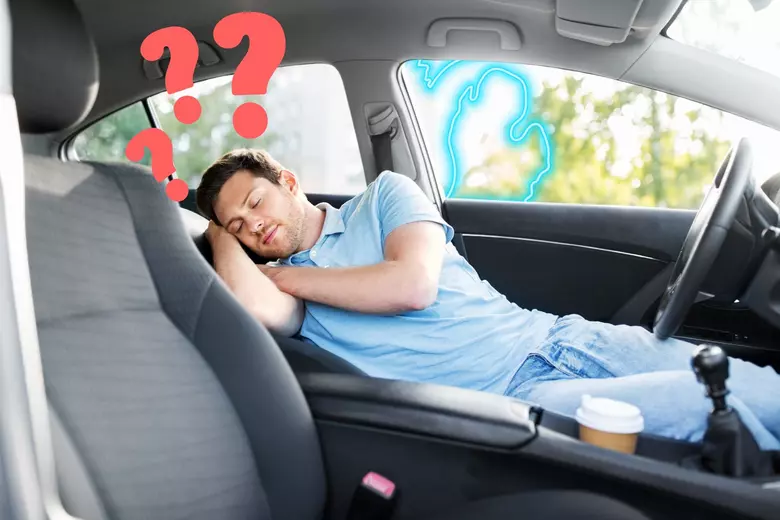Ever felt the exhaustion creep in during a long road trip through Delaware’s scenic landscapes? Maybe you’re an adventurer seeking a budget-friendly car camping experience. But before you drift off to sleep under a blanket of Delaware stars, a crucial question arises: is it legal to sleep in your car here?
Understanding the legalities of car sleeping in Delaware is essential for travelers, road-trippers, and anyone who might find themselves needing a temporary place to rest. This comprehensive guide explores the legalities of car sleeping in Delaware, including state and local regulations, safety tips, and alternative options for rest, ensuring a smooth and legal experience.
Understanding Delaware’s Laws
Unlike some states with blanket bans, Delaware offers more flexibility. There’s no statewide law prohibiting sleeping in your car. However, limitations exist specifically for rest stops. You can legally catch some shut-eye in your car at a Delaware rest area for a maximum of four hours. This falls shorter than the national average, so plan your rest accordingly.
Always be on the lookout for signage at rest areas. These signs clearly outline parking regulations, including any restrictions on overnight stays. Don’t rely solely on this guide; staying informed ensures a hassle-free experience.
Local Ordinances
While there’s no statewide ban, Delaware’s cities and towns may have their own ordinances regarding car sleeping. Researching the specific laws of the city or town where you plan to park for the night is vital. You can usually find this information on the municipality’s website or by contacting local law enforcement.
Here are some examples of local laws:
- Wilmington: Wilmington doesn’t have specific regulations against car sleeping, but general parking restrictions and public nuisance laws might apply.
- Dover: Similar to Wilmington, Dover lacks specific car sleeping laws. However, overnight parking bans on certain streets could be an issue.
- Rehoboth Beach: This popular beach town enforces stricter parking regulations, particularly during peak season. Sleeping in your car overnight within city limits might be prohibited.
Safety Considerations for Car Sleepers
Choosing well-lit and populated areas to park your car for the night is a wise safety precaution. This deters potential crime and increases your visibility. Rest areas are a good option; they’re often patrolled by law enforcement, providing an added layer of security.
Taking common-sense measures like locking your car doors and windows, keeping valuables out of sight, and parking in designated areas can significantly improve your safety. Always trust your gut. If a location feels unsafe, don’t hesitate to move to a different spot.
Alternative Options for Rest
Delaware offers a variety of campgrounds catering to different budgets and preferences. Blackbird State Forest near Smyrna allows car camping for up to three days a week with a permit. Many private campgrounds also have car camping options.
Some truck stops in Delaware allow overnight parking for a fee. This can be a convenient option, especially near highways.
Certain churches, Walmart stores, or public parking lots might offer designated overnight parking programs. Research online or inquire locally to find these options.
When Car Sleeping Might Be Illegal
Sleeping in your car on private property without permission is trespassing. Parking in a way that obstructs traffic flow or blocks driveways is illegal and could lead to a ticket or towing.
If your car parked overnight attracts attention due to suspicious activity, you might be approached by law enforcement.
What to Do if Approached by Law Enforcement
If a police officer approaches your car while you’re sleeping, stay calm and polite. Explain that you were resting and following the law (limited to four hours at rest areas). Be cooperative and provide identification and any other information requested by the officer.
Conclusion
Sleeping in your car in Delaware can be a legal option, but with limitations. Understanding state and local regulations, prioritizing safety, and exploring alternative rest options are crucial for a smooth and legal car sleeping experience. With a little planning and awareness, you can ensure a safe and legal car sleeping experience while exploring the beautiful state of Delaware.
Additional Resources
For further information on Delaware state parks and campgrounds, visit the Delaware Department of Natural Resources and Environmental Control website (https://dnrec.delaware.gov/parks/).



